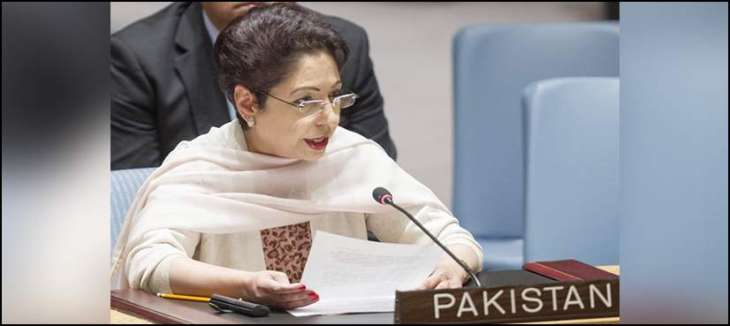Pak for “spirit of flexibility and compromise” to reform UNSC

New York: Pakistan has called for a “spirit of flexibility and compromise” in the long-running negotiations to reform the United Nations Security Council (UNSC) as progress is held up by the insistence for permanent seats on the 15-member body by India, Brazil, Germany and Japan, known as the Group of four. Speaking in the resumed session of Inter-governmental Negotiations (IGN) aimed at expanding the Council, Ambassador Maleeha Lodhi said the proposal from Italy/Pakistan-led Uniting for Consensus (UfC) group, which opposes additional permanent members, is based on democratic ideals and takes onboard the concerns and interests of all member states, small, medium and large. “We hope that this round of negotiations would see the triumph of collective good over the individual ambitions of a few member states,” the Pakistani envoy held. Opening the new round, the General Assembly President, María Fernanda Espinosa, regretted lack of progress in the past 25 years towards restructuring the Security Council, and called for dialogue and flexibility to move forward. “Intergovernmental negotiations began more than a decade ago, Ms. Espinosa said, adding, “And still, the composition of the Security Council continues broadly to reflect the world as it was in 1945, save for the increase in non-permanent seats agreed half a century ago.” Ambassador Lodhi described Ms. Espinosa as an “ardent and consistent advocate of multilateral cooperation”, and said, “We were privileged to listen to her articulate defence of multilateralism, based on mutual respect and shared benefit, during her recent visit to Pakistan.” Full-scale negotiations to reform the Security Council began in the General Assembly in February 2009 on five key areas, the categories of membership, the question of veto, regional representation, size of an enlarged Security Council, and working methods of the council and its relationship with the General Assembly. Despite a general agreement on enlarging the Council, as part of the UN reform process, member states remain sharply divided over the details. The Group of four has shown no flexibility in their campaign to expand the Security Council by 10 seats, with 6 additional permanent and four non-permanent members. Stressing the need for a meaningful dialogue by all sides to address their fundamental differences, Ambassador Lodhi said, “The five clusters of issues are not check-lists of items that can be conveniently ticked and moved away; they outline fundamental aspects of the reform process, and must be dealt with in a comprehensive manner.” Artificial timelines, the Pakistani envoy emphasized, could not be placed to pace this endeavour, as what everyone sought was the widest possible political acceptance by all member states.





